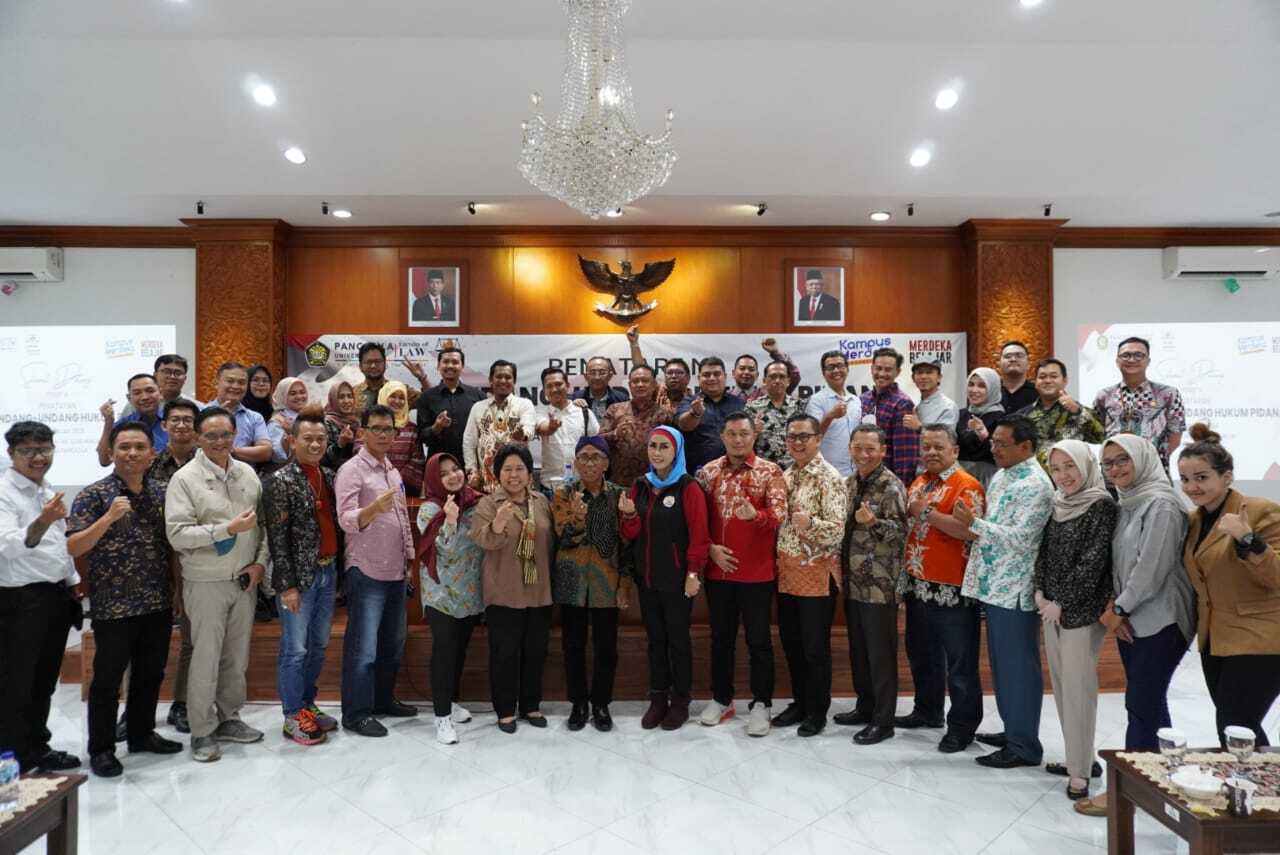Indonesian Criminal Law and Criminology Society (MAHUPIKI) in collaboration with
The Law Faculty of Pancasila University held an introductory course on Book 1 of the New Criminal Code
February 7-9 2023 at the Pancasila University Campus. This training was followed by 65
participants from criminal law lecturers and lawyers from 17 provinces in Indonesia.
This activity is the first activity carried out in Indonesia regarding the New Criminal Code
(UU No. 1 of 2023) after the Criminal Code was signed by the President of the Republic of Indonesia Mr. Jokowi date
February 2, 2023. This event was opened by the Dean of the Law Faculty of Pancasila University, namely Prof.
Dr. Eddy Pratomo, S.H., MSi. In addition, the Chairperson of MAHUPIKI, namely Dr. Yenti Garnasih, S.H.
M.H was also present and gave a speech
The teachers presented in this upgrading were the drafters of the Criminal Code and also those who
involved in discussions about the substance of this new Criminal Code. Teachers are also Professors
Criminal Law and MAHUPIKI management who were involved in the drafting process from the start
This new Criminal Code. Instructors invited in this training are:
(1) Prof. Dr. Marcus Priyo, SH. M.H (professor of criminal law at Gadjah Mada University);
(2) Prof. Dr. Topo Santoso (Professor of Criminal Law, Faculty of Law, UI);
(3) Dr. Harkristuti Harkrisnowo, SH, MA (Professor of the UI Faculty of Law);
(4) Dr. Pujiono, S.H, M.Hum (Professor of the Faculty of Law, Diponegoro University);
(5) Prof. Dr. Elwi Danil, S.H, MH (Professor of Criminal Law at Andalas University);
(6)Dr. Yenti Garnasih, S.H, M.H (General Chairman of MAHUPIKI);
(7)Dr. Chairul Huda, SH, MH (Lecturer in Criminal Law at the Faculty of Law, University of Muhammadiyah Jakarta);
(8)Dr. Surastini Fitriasih, SH, M.H (Lecturer in Criminal Law, Faculty of Law, University
Indonesia. In this seminar, the topics raised and presented by law professors
crimes and teachers are (1) criminal acts, teachings against the law, criminal complaints
and justification reasons; (2) criminal guilt and liability; excuses (3)
reasons for justifying and mitigating punishment (4) criminal conviction and action (5)
participation, consortium, conspiracy, preparation, trial (6) special crime
and transitional arrangements in the new Criminal Code; (7) The authority to sue and
carrying out a crime (8) the scope of the application of criminal law. These topics constitute
the most fundamental principle that must be understood by educators of criminal law, lawyers
and also legal investigators, so that they are not wrong in applying this new Criminal Code. Because of this it is important to study these principles. For example, one of the principles that is widely discussed in
This upgrading is the legal principle that lives in society (living law) is understood and
implemented. From this upgrading, it was concluded that it was not easy to understand the substance of the Criminal Code
this is new for criminal law lecturers especially when the new Criminal Code will be implemented by
law enforcement for the next three years. Because of that, this upgrading is recommended
that the government immediately conducts a series of trainings for law enforcers, judges,
penitentiaries, community centers, lecturers because there is a paradigm shift
in sentencing, and several criminal acts that are new and need to be well understood.
In addition, it is necessary to immediately make several modules that are easily understood by law enforcers,
judges, correctional institutions, community halls and of course also for teachers
judges, correctional institutions, community halls and of course also for teachers
As a conclusion, from this upgrading, the new Criminal Code has made many changes to
The old Criminal Code, so if you don’t prepare properly, chaos will ensue
law enforcement when this new Criminal Code comes into force on 2 February 2026.
